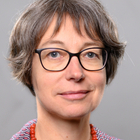The Current Column
2014 – Time for a new policy of co-operation
Scholz, ImmeThe Current Column (2014)
Bonn: German Development Institute / Deutsches Institut für Entwicklungspolitik (DIE) (The Current Column of 13 January 2014)
Bonn, 13 January 2014. In the new year, we will need courage to follow new paths and the ability to learn from the mistakes of the past when determining a new global agenda, to be in place as of 2016. This post-2015 agenda is not only of urgent priority for development policy, it also provides the German government with the opportunity to fulfil an international leadership role and give a push to international co-operation in a range of political fields. Courage to follow new paths The post-2015 agenda aims to build upon the successes of the Millennium Development Goals (MDGs). It is difficult to furnish scientific proof for the links between the MDGs and poverty reduction. However, there is no doubt that the MDGs have reinforced joint action in North and South, including financial commitment, to improving the living conditions of people. This is encouraging and helps us move towards broader horizons: because whilst the eight MDGs focused primarily on improving living conditions in developing countries, the post-2015 agenda looks towards universal goals for sustainable development, which should guide both domestic policies and global co-operation of all UN member states. The aim is no longer just development co-operation between north and south, or aid from rich countries to poor ones, but national and international joint action to achieve common goals: the reduction of poverty and inequality, protection of the climate and biodiversity, sustainable energy for all, food security, peace and security. Learning from mistakes The experience of the MDGs has also shown us how difficult it is to make progress with regard to complex goals such as reducing maternal mortality or hunger. Solutions in these areas can only be found through new political priorities and effective policy co-ordination. To ensure that mothers no longer die during childbirth it is not only necessary to improve healthcare and roads, but also the nutrition, education and political participation of women. Who exactly suffers from hunger and why – this needs to be analysed and understood in order to increase the availability of food in the countryside and reduce losses incurred during storage and transport, as well as increasing purchasing power in the towns. Making progress in these areas therefore requires more than quantified goals and specific deadlines. It means experimenting with new policies that enable integrated action. Successes and failures need to be monitored and understood in order to advance. What needs to be done Development co-operation has successfully tested models of co-operation and ways for the transfer of capital, knowledge and expertise in many areas. This wealth of experience can also be valuable when implementing the post-2015 agenda. However, we should be clear that more is at stake in the future: securing the prosperity of current and future generations is a task that calls for clear political focus and a renewed comprehension of our international relations and co-operation with partner countries. One example for this is the expansion of the G8 to the G20. For domestic policies, too, there are new tasks to face. Climate change and food security, for example, call for a new quality of co-operation between departments and between state and private actors in Germany. The objective is no longer one of avoiding negative side effects in adjoining policy areas, but to develop complementary strategies for common goals, and to use the diverse expertise and instruments in a targeted manner. These parallel domestic and international challenges will need to be mastered in the next two years, before the adoption of the post-2015 agenda. In many industrialised, emerging and developing countries specific initiatives are being developed to face the new global challenges. The willingness and interest in co-operating with Germany is considerable. However, thus far our co-operation instruments have not been aimed at achieving co-operation between all interested countries, as they are designed for either north-south transfer or co-operation on an equal footing between industrialised countries (e.g. in the research co-operation projects in which large emerging countries are also increasingly participating with their own funds). It is therefore also necessary to use the post-2015 process for a reform of the instruments of international co-operation, in order to open it up for reciprocal co-operation processes.

